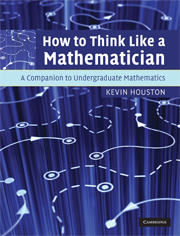Preface
Summary
Question: How many months have 28 days?
Mathematician's answer: All of them.
The power of mathematics
Mathematics is the most powerful tool we have. It controls our world. We can use it to put men on the moon. We use it to calculate how much insulin a diabetic should take. It is hard to get right.
And yet. And yet … And yet people who use or like mathematics are considered geeks or nerds. And yet mathematics is considered useless by most people – throughout history children at school have whined ‘When am I ever going to use this?’
Why would anyone want to become a mathematician? As mentioned earlier mathematics is a very powerful tool. Jobs that use mathematics are often well-paid and people do tend to be impressed. There are a number of responses from non-mathematicians when meeting a mathematician, the most common being ‘I hated maths at school. I wasn't any good at it’, but another common response is ‘You must be really clever.’
The concept
The aim of this book is to divulge the secrets of how a mathematician actually thinks. As I went through my mathematical career, there were many instances when I thought, ‘I wish someone had told me that earlier.’ This is a collection of such advice. Well, I hope it is more than such a collection. I wish to present an attitude – a way of thinking and doing mathematics that works – not just a collection of techniques (which I will present as well!)
- Type
- Chapter
- Information
- How to Think Like a MathematicianA Companion to Undergraduate Mathematics, pp. ix - xiiPublisher: Cambridge University PressPrint publication year: 2009



